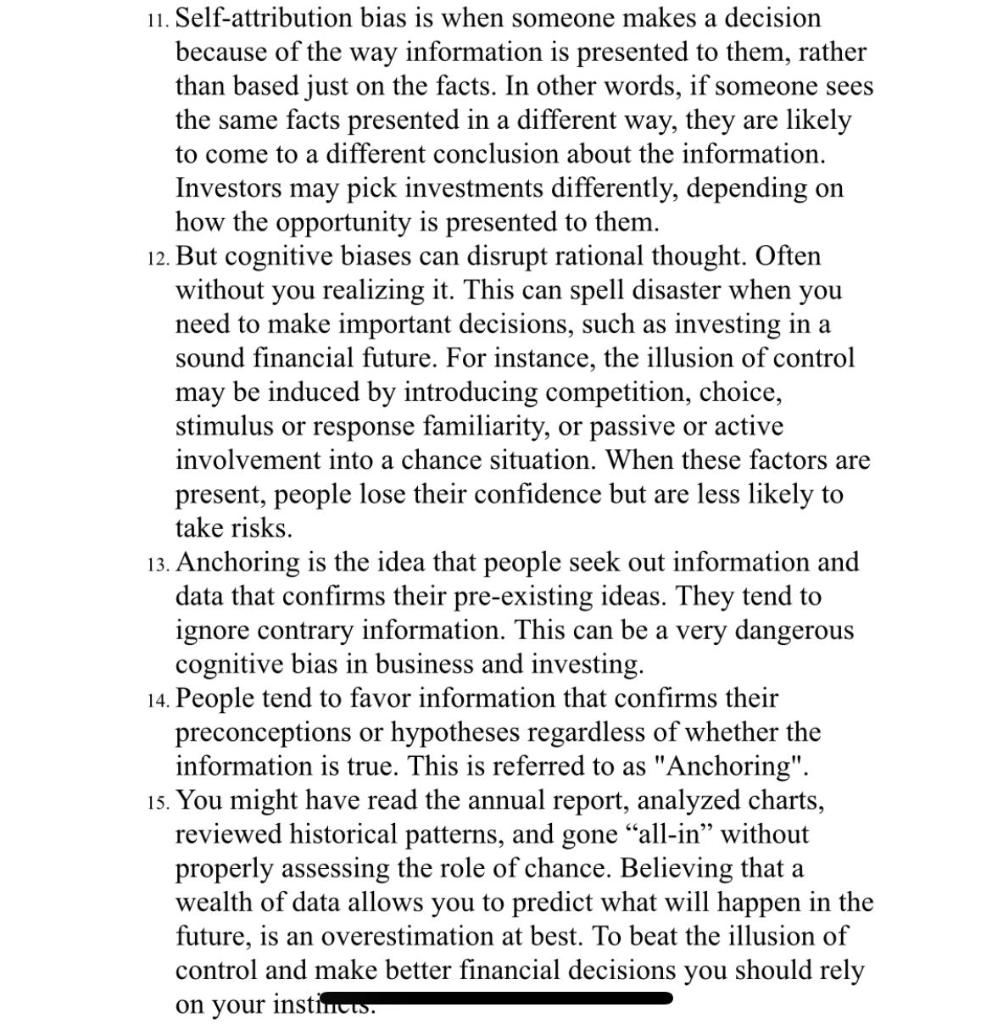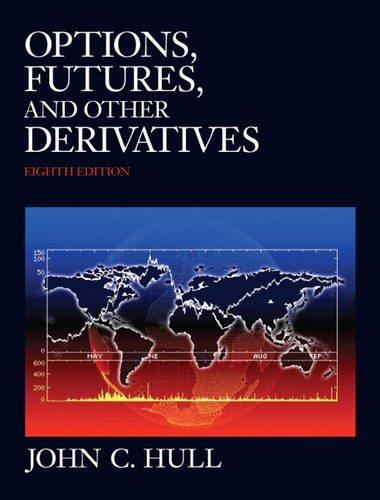
11. Self-attribution bias is when someone makes a decision because of the way information is presented to them, rather than based just on the facts. In other words, if someone sees the same facts presented in a different way, they are likely to come to a different conclusion about the information. Investors may pick investments differently, depending on how the opportunity is presented to them. 12. But cognitive biases can disrupt rational thought. Often without you realizing it. This can spell disaster when you need to make important decisions, such as investing in a sound financial future. For instance, the illusion of control may be induced by introducing competition, choice, stimulus or response familiarity, or passive or active involvement into a chance situation. When these factors are present, people lose their confidence but are less likely to take risks. 13. Anchoring is the idea that people seek out information and data that confirms their pre-existing ideas. They tend to ignore contrary information. This can be a very dangerous cognitive bias in business and investing. 14. People tend to favor information that confirms their preconceptions or hypotheses regardless of whether the information is true. This is referred to as "Anchoring". 15. You might have read the annual report, analyzed charts, reviewed historical patterns, and gone "all-in without properly assessing the role of chance. Believing that a wealth of data allows you to predict what will happen in the future, is an overestimation at best. To beat the illusion of control and make better financial decisions you should rely on your instintis. 11. Self-attribution bias is when someone makes a decision because of the way information is presented to them, rather than based just on the facts. In other words, if someone sees the same facts presented in a different way, they are likely to come to a different conclusion about the information. Investors may pick investments differently, depending on how the opportunity is presented to them. 12. But cognitive biases can disrupt rational thought. Often without you realizing it. This can spell disaster when you need to make important decisions, such as investing in a sound financial future. For instance, the illusion of control may be induced by introducing competition, choice, stimulus or response familiarity, or passive or active involvement into a chance situation. When these factors are present, people lose their confidence but are less likely to take risks. 13. Anchoring is the idea that people seek out information and data that confirms their pre-existing ideas. They tend to ignore contrary information. This can be a very dangerous cognitive bias in business and investing. 14. People tend to favor information that confirms their preconceptions or hypotheses regardless of whether the information is true. This is referred to as "Anchoring". 15. You might have read the annual report, analyzed charts, reviewed historical patterns, and gone "all-in without properly assessing the role of chance. Believing that a wealth of data allows you to predict what will happen in the future, is an overestimation at best. To beat the illusion of control and make better financial decisions you should rely on your instintis







